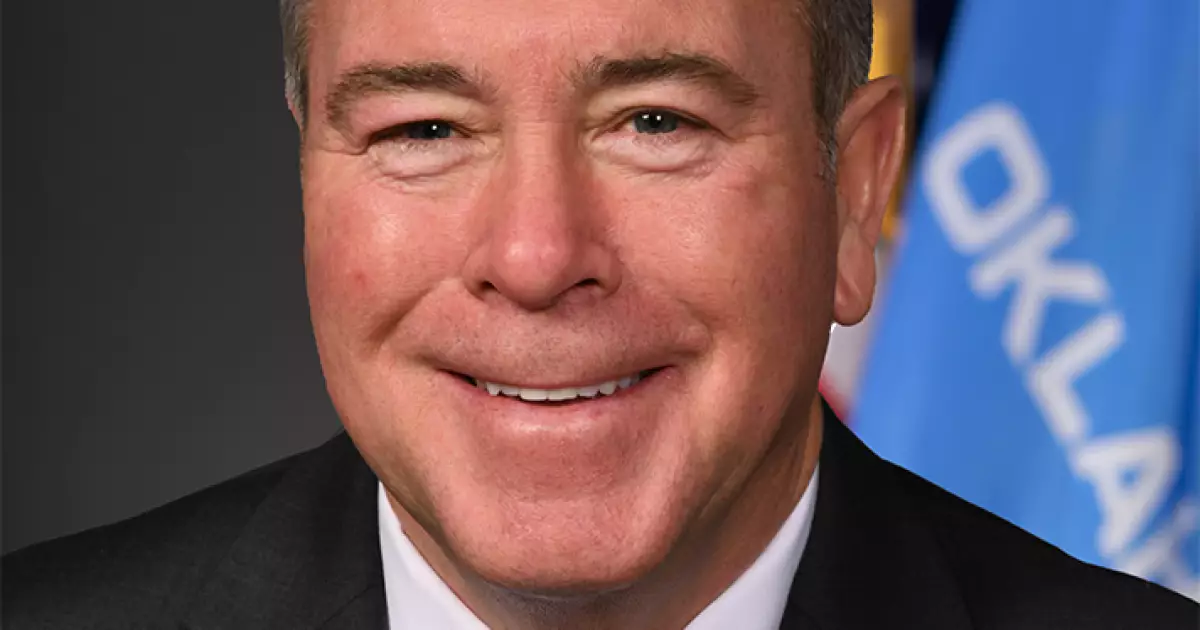The recent lawsuit filed against Oklahoma Treasurer Todd Russ and key members of his office has brought significant attention to the state’s handling of environmental, social, and governance (ESG) investment practices. This legal action, initiated by FOIA Professional Services LLC, raises critical questions about transparency and accountability within state financial operations. Allegations of document withholding and possible destruction reveal deeper issues about the intersection of politics, finance, and environmental responsibility.
At the center of the controversy lies Oklahoma’s Energy Discrimination Elimination Act of 2022, a controversial law that aimed to restrict state contracts with firms deemed to be boycotting the fossil fuel industry. This legislation was met with immediate backlash and legal challenges, culminating in a July decision by an Oklahoma County District Court that permanently blocked its enforcement. The act, spearheaded by Treasurer Russ, prohibited any state or local government contracts exceeding $100,000 with financial institutions appearing on a blacklist that included prominent names like JP Morgan, Bank of America, and BlackRock.
This dramatic shift in policy is emblematic of a broader national debate regarding the influence of ESG criteria on corporate operations. The backlash against such frameworks has been particularly pronounced in Republican-led states, which argue that these policies aim to undermine traditional industries. In this context, the lawsuit serves not only as a legal challenge but also as a focal point for ongoing debates over corporate responsibility and governance.
The allegations made by FOIA Professional Services point to a troubling lack of transparency in Todd Russ’s office. The company asserts that despite multiple requests for documents pertaining to contracts with significant financial institutions, the treasurer’s office only partially complied. More alarmingly, there are accusations that emails containing crucial ESG discussions were sent to and potentially destroyed from Jordan Harvey’s personal email account.
These claims suggest that, rather than engaging openly with stakeholders and the public, key figures within the Oklahoma government may have sought to obscure information related to significant financial decisions. For a state that is increasingly wrestling with environmental and regulatory pressures, such alleged behavior undermines public trust and chills the discourse surrounding these crucial issues.
If the allegations regarding the improper handling of documents hold true, the implications could be profound. First and foremost, it would signify a blatant disregard for the principles of transparency that should govern public offices. Transparency is essential not only for accountability but also for fostering strong relationships between government bodies, the public, and the private sector.
Furthermore, given the current political landscape, this lawsuit could set a precedent for future actions against similar laws or policies restricting contracts based on ESG criteria. It also opens the door for greater scrutiny of state officials’ decisions and motivations, especially those that lack scientific and ethical support. The public’s growing concern about corporate governance and environmental impact means that defense of such practices must be fortified with clear, legally sound reasoning.
Public sentiment surrounding the allegations is mixed, reflecting the divided opinions on ESG criteria within Oklahoma and beyond. Many local residents advocate for responsible corporate behavior that aligns with sustainability and social accountability, arguing that the state’s aggressive stance could lead to economic isolation from progressive investors. Conversely, some state officials and residents fear potential job losses tied to perceived governmental overreach into business operations.
As the legal battles unfold, the immediate outcome remains uncertain. However, the lawsuit has already stirred conversation around the broader implications of ESG criteria. It raises significant questions regarding the ethical responsibilities of both state actors and the corporations with which they engage.
The legal action against Treasurer Todd Russ and his office underscores a complex intersection of state policy, corporate governance, and environmental ethics. It serves as a critical reminder of the ongoing tensions between government regulation and corporate freedom while highlighting the demand for transparency and accountability in our public institutions. As the nation grapples with questions surrounding sustainability, equity, and responsible governance, Oklahoma’s situation could very well serve as a bellwether for similar conflicts arising across the country. The outcomes of this lawsuit could not only impact future state policies but also redefine the conversation surrounding ESG investment practices in a transformative era for corporate governance.

